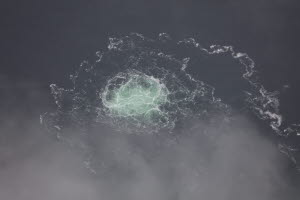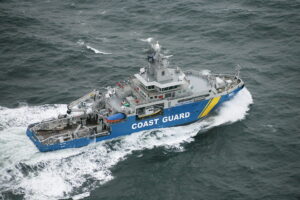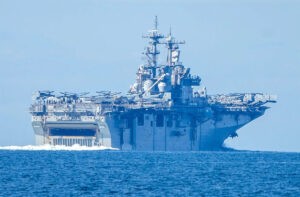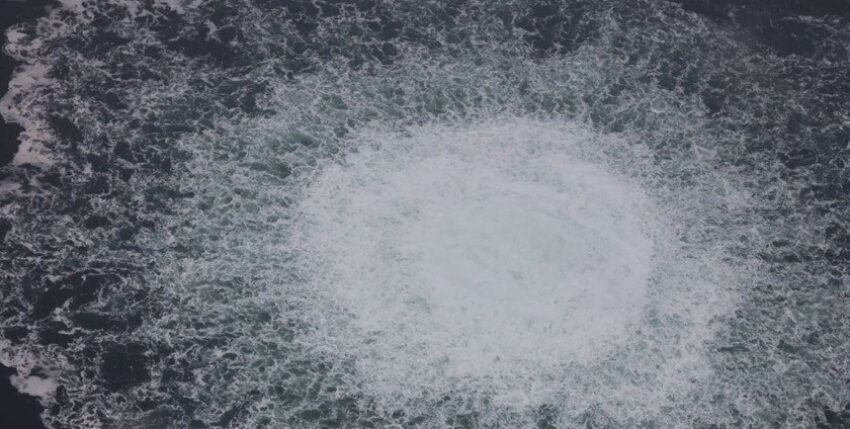Now the fourth leak has (finally!?) been discovered, which was logically to be expected with four pipes. Otherwise, there might have been an embarrassing detonation failure, which would at least have allowed a relatively reliable attribution of the perpetrator after finding the charge and analysing the explosives and detonation fitting. Or worse still, a booby trap with detonation time should have been considered during investigation or repair work.
Situation picture
The picture is still diffuse - too many organisations are interested in reporting quickly and in a simplified manner. None of us are part of the situation centres where the information is condensed and comes closer to the truth, but we can try to put together the facts from the side of open information. Below is some information, reflections and questions that complement the initial report,from 28 September 2022.
Current situation
According to initial analyses of Swedish data, the fourth leak should be located in the twin pipe of Nord Stream 2 near the previously identified leak southeast of Bornholm, just outside Danish territorial waters. According to the Tagesspiegel, the fact that the boundaries of the Swedish and Danish Exclusive Economic Zones have not yet been finalised is probably also the reason why neither country has yet claimed an attack on critical infrastructure - even if it is not necessarily their own. In any case, the operating company Nord Stream AG (51% Gazprom, Zug/Switzerland) announced an investigation after the leaks became known in order to determine the damage and clarify the causes of the incident. This goes without saying, but the incident has now reached dimensions that go far beyond the purely operational - see below.

The following questions are currently still unanswered
- Was a new detonation recorded before the fourth leak was discovered, and were the initial recordings so clear that each individual seismic event could be separately attributed to a leak?
- Was the pressure drop (down to 7 bar - corresponding to the pressure at a water depth of 70 to 80 metres) detected in only one of the pipes at the Nord Stream 2 landfall, or was the second pipe also affected on Monday?
Answers should be available at short notice and clarify the situation.
In the next few days
The Swedish Foreign Ministry announced that the UN Security Council would deal with the situation on Friday afternoon at Moscow's request. NATO and the European Union are in consultations and have commented on the incident in the media.
By Sunday at the latest, the gas should have escaped from the pipeline to such an extent that it will be possible to venture close to the pipeline. But even then, it should take another week or so before things calm down and we can approach the crime scenes. Unless, of course, the Russian side - depending on their interests - continues to pump in gas to keep the pipes as free of seawater as possible and thus as corrosion-free as possible. Repairing the defective pipeline alone will not be easy, but once it has been flooded with seawater over long distances, the cost of restoring it to full functionality is unlikely to stand up to a profitability comparison.
On the other hand, staying in or travelling through the gas-permeated, bubbling and surging environment of the leak is also a risk for any floating body based on displacement - the considerably reduced density ratios significantly determine the submergence and buoyancy behaviour of ships and boats. As long as gas continues to flow out of the pipelines at the intended rate, hardly anyone will dare to go there unsecured for the time being - and be able to clear it up!

"KBV 003 "Amfitrite", a Swedish Coast Guard vessel prepared for maritime pollution operations and equipped with a remote-controlled drone, is operating in the vicinity of the gas leaks in the Swedish economic zone. At present, this is more for the purpose of securing maritime traffic, as a reconnaissance mission is not yet indicated.
Speaking of climate
The Danish Energy Agency has calculated that the climate impact of the gas leak is equivalent to a four-month footprint for Denmark. According to another comparison, 120,000 tonnes of methane would correspond to around 10 million tonnes of CO2, i.e. the annual emissions of 2 million petrol cars on the road. As a result, researchers believe that the impact of the gas leak on the environment and climate is rather low - and that there is actually no concrete health risk for the population, especially on the Baltic Sea island of Bornholm. However, recent studies on methane have also shown that it can be absorbed in seawater and, by activating algae, is able to stimulate them to bind CO2. Relative all-clear in this respect!
Who could it have been?
Much more important - and all the less answerable - are the questions about who is responsible for these highly probable acts of sabotage. Who has an interest in stopping gas supplies through Nord Stream? Which state actor has an interest in permanently disabling the two pipelines? Which state can carry out such an action? How and when would it do so? What is the purpose, what is the intention behind it? Who will suffer the greater damage and what risk will be taken vis-à-vis allies? And why at this particular time? Which naval forces have been active above, on and under water in the area in recent weeks, or could they be identified? Every answer raises further questions! The Federal Republic's society of fear and suffering, bored by the crime scene, can be sure of the most obliging service from the media of all colours!
The "rogue states"
It would primarily be the supply chain partners Russia, Ukraine, Poland and Germany that would have to be considered. Who of them could, who wanted to? France, the UK and China would of course also have the means and opportunities - but what motive? However, it would be much more likely to be the two opponents, the USA and Russia, who remain confrontational - and between them (not insignificantly) the entire European West.
If one continues to assume sabotage, then the incident was a complex operation. In order to carry out this operation, a few conditions must be met: 1. precise geographical knowledge of the Nord Stream pipelines, 2. ability to operate at water depth, 3. bringing together various naval assets across three dimensions, 4. simultaneous detonations for the purpose of concealment, 5. absence at the time of the incident. All of this requires preparation, resources and political will. There are only a few players in the intersection of these three requirements.
What motives could Russia have for sabotage?
At the end of August, Russia completely suspended gas deliveries through Nord Stream 1 - due to necessary repairs and a missing turbine, i.e. maintenance work delayed by sanctions, according to the wording. However, it is more likely that Russia wants to use the blocked pipeline to artificially drive up the European gas price, as this brings money into the Kremlin's coffers.
However, maintenance work will be completed at some point, and if Russia were to stop supplying gas, this would constitute a breach of contract. In its endeavours to become independent of Russian gas, Germany could terminate the supply contracts, some of which are still long-term, without delay and without penalty. If the pipeline is defective, as it is now, this is of course not possible - because Russia cannot deliver despite all its "good intentions".
The following chain of reasoning is also conceivable: If Russia - in the "interests of the West" - also wants to carry out any repairs, sanctions would have to be circumvented in order to award contracts to the predominantly Russian Nord Stream operator (including to Western suppliers). In addition, it would need access to all of its finances.
From Moscow's exclusively power-political perspective, sacrificing its own "grains of gold", which makes no sense from a Western economic point of view, could make perfect sense - if it drives up fear and prices and a climate of general uncertainty drives the European Union into disunity. It is therefore more likely - despite all protestations of innocence - that the Kremlin is making the unspoken but credible threat of being able to carry out such operations anywhere in the world, whether energy or data pipelines, under water or on land, whenever it suits. Moscow's ability to wage hybrid warfare has been all too evident in recent years. The barriers of written and customary law, which have now fallen not only as a result of this sabotage, open up alarming and frightening possibilities - right up to the covert threat of the use of nuclear weapons. The sovereignty of escalation across the entire spectrum of military and non-military warfare currently lies with the ruler in the Kremlin - hardly anyone else comes into question here. Toyota - nothing is impossible!
The question of America's clean slate
Sceptical observers of American actions around the globe in both the industrial and military sectors may see the immediate finger-pointing at Russia as a well-orchestrated diversionary manoeuvre by Uncle Sam. Too easy and too quick to avoid asking unpleasant questions. Could the shutdown of the Nord Stream pipelines not be so much in the American interest that America would allow this sabotage to be carried out? You have to put up with this question!

What was the Kearsarge ARG (Amphibious Ready Group) doing on its way there and back to the Baltic? Was it in the area because it had information and wanted to prevent or deter something - or did it want to do something there itself? Was its visible presence in the Baltic Sea in support of the Baltic states merely a welcome opportunity to exert influence by means of explosive charges, among other things? Any behaviour can be interpreted as a "narrative" in two ways. How far would American industry go to secure future sources of energy and raw materials on the Eurasian continent? How urgent is it for American politicians to bring the war in Ukraine to a swift end before a possible reversal of public support for Ukraine due to a "winter of suffering" in Germany and Europe? Would an economic collapse - possibly even the collapse - of the industrialised nation of Germany be in the interests of the American economy? Would the White House also want to go along with this and risk jeopardising the transatlantic bridge for such goals? These questions should be answered clearly and credibly in public so that existing doubts do not spread to create further division among the population.

Fundamental question
So how far would the two rivals go to decide the outcome of the Russian-Ukrainian adventure in their respective favour? With Putin, or without? The finger-pointing, the accusations and the denials will probably confuse more than enlighten.
And in Germany?
Any line of argument - whether from the far right or the far left, or from the centre and intended for the time thereafter - about de-sanctioning and thus the (far from guaranteed) resumption of gas supplies should now have been turned off! That's a good thing, some will think. And what next?
The Federal Foreign Office has set up a crisis team involving other ministries and the Chancellery. The BND is said to have a leading national role in gathering intelligence on surface and underwater maritime traffic in the area of the spill and in the period leading up to the detonations.
Other consequences include an increased presence in the coastal areas of the North Sea and Baltic Sea as well as an intensification of inspections, particularly of critical infrastructure (CI) within territorial waters by the federal police. If we are at all clear about what counts as CI - the term includes gas, oil and electricity pipelines as well as telecommunications cables, but also energy transhipment terminals, harbour facilities and offshore installations - maritime CI should ultimately also include the sea routes.
Was it professional intuition that prompted the naval inspector to point out our critical underwater infrastructure just a few days before the incident? In any case, the German Navy is preparing for multinational investigations to clarify the causes - it has not yet been decided who will take the lead, but it should be clear that we have an outstanding task ahead of us.
Union and alliance?
Ultimately, it remains to be seen what a robust response will look like, especially for the EU. On the NATO side, the question of an alliance case arises - the formulation presented by the NATO ambassadors on Thursday goes in this direction. It is questionable whether a consensus can be reached on this. The fact is, however, that comprehensive protection of maritime infrastructure cannot be achieved in the long term. In this respect, a possible way out of the dilemma lies in an elaborate diversification and a broader expansion of the energy supply.
Conclusion
However, because it will hardly be possible to ultimately clarify the question of the perpetrator (and thus also the perpetrator's intention), we are all currently watching a "live experiment" completely powerless, without - unlike with climate change - being able to intervene ourselves.









4 responses
It is a disgrace that the German side has not done enough to investigate the terrorist attack on the Nordstream pipeline or has deliberately left the population in the dark without providing essential information. Germany must be more active in providing information and clarification. Or is the German secret service unable to produce results?
The amphibious assault ship US KEARGSARGE (LHD3) was presumably (but in accordance with published targeting data) in the area of the sabotage site in a period around 15-20 Sept 2022.
The ship is a kind of aircraft carrier, among other things for helicopters and naval aircraft, see:
https://garystockbridge617.getarchive.net/amp/de/media/an-mh-60-sea-hawk-helicopter-lands-on-flight-deck-the-amphibious-assault-ship-57b32a
The US KEARGSARGE (LHD3) also has a so-called well deck, see:
https://www.reddit.com/r/WarshipPorn/comments/65ks94/a_lcac_enters_the_well_deck_of_uss_kearsarge_lhd3/
The well deck is used for launching amphibious vehicles, mini-submarines, etc. It can be lowered (flooded) below the water surface using ballast tanks.
In conjunction with naval aircraft or helicopters, this provides an ideal system for any form of underwater work, especially for the installation of heavy explosive charges.
At the press conference with him and Chancellor Scholz in Washington D.C. on 7 September 2022, President Biden explicitly stated that if Russian troops and tanks were to cross the Russian-Ukrainian border (again), the Nordstream II pipeline would cease to exist. When asked how this would be possible - the pipeline is controlled by the Germans after all - Biden replied briefly: "I promise that we are in a position to do so".
Russia seems rather unlikely to me as the perpetrator, although I can certainly understand the arguments in favour. However, it still doesn't make sense to me why ...
- Russia should choose this particular sea area for such an action (not operate in parts of the Baltic Sea that are perhaps less risky for them militarily)
- Russia should take away the basis for political division in Germany and a central argument for protests in the autumn
- Russia should deprive itself of the opportunity to show political strength and, in the long term, the corresponding economic flexibility based on the ability to open or close the tap on the pipelines
- Russia chooses its own, enormously expensive infrastructure, does this in secret, and should ultimately voluntarily damage the economic substance of its nuclear industry (even if this increases the price of gas in the short term)
Politically and economically, it seems to me that other countries benefit significantly more. I'm not just thinking of the USA here; Poland and Ukraine are hardly mentioned. Don't these two countries have the greatest advantages and Poland in particular the best geographical location? Now a pipeline runs through Ukraine from Russia to the EU and Russia can hardly stop European states from supporting Ukraine with gas supplies, or at least restrict them. So the question remains: can and will the navy be able to provide us with hard facts that give us clarity - and will it do so if allies are involved?
Dear Mr Hansen,
I would like to try to formulate a few answers to your questions.
Why this particular sea area? Well - on your own doorstep (i.e. in national territorial waters) you wouldn't want to allow such actions or dump such rubbish. And the closer it is, the clearer the pointing of the finger at the polluter.
Taking the basis out of divisive tendencies in Germany by destroying the gas supply pipeline? Divisive tendencies - as the term suggests - are a creeping process - politically extremely unpleasant, but slow and difficult to control. Fear and apprehension in the target area have an immediate effect - and this could also work to the advantage of the ruler in the Kremlin in terms of domestic politics. Energy and information-dependent states will reflexively take care of their critical infrastructure - their forces will be immediately tied up! Law enforcement agencies (federal and state police, customs, coast guard, navy, etc.) will become active, and democratic discussion processes will slow down the speed of reaction. Increased protection and surveillance efforts can only be maintained for a very limited time and at 100%.
Showing strength through a "tap on and off" policy? This will only work if the West does not survive the winter economically. Otherwise, Russia is no longer a serious negotiating partner, at least under Putin - he has gallantly bowled himself out of the club this year!
Destroying its own infrastructure? Russia's world of thought is not fundamentally economic-market orientated - oligarchic individual cases confirm the rule. Russia's basic behaviour appears to be more power-oriented - the justifications contrary to international law and the brutalising behaviour in the Ukraine war make this clear! Once Nord Stream 1 and 2 have been taken out of the game through flimsy repair arguments and Germany is quickly on the way to other energy imports and production routes, this pipeline is no longer a reliable and powerful piece on the chessboard of Russia's options - then you might as well do without it! This move would certainly be more than a "pawn sacrifice", but to call it a "queen sacrifice" to save the king would perhaps be overstating the case. Because that would mean that the "pipeline sacrifice" was an act of desperation by the ruler in the Kremlin. Surely things haven't got that far yet? But it would be a valid move!
What could actually be behind the act of sabotage on Nord Stream 1 and 2 will be almost impossible to determine. In these proceedings, the navy is not a police or criminal authority. It will investigate, monitor and fight, but will hardly be able to bring any relevant facts to light. And in this scenario, no nation will be able to act on its own: all state organisations of all neighbouring countries and the operators/owners of the pipeline are required to act. In other words, a lot of time will pass before we hear any relevant news.
Even if these answers will not be to everyone's liking, the questions should not be left uncommented. The answers are not an assignment of blame, they merely show one of the possible interpretations of the incident.
For the editorial team
A. Stephenson